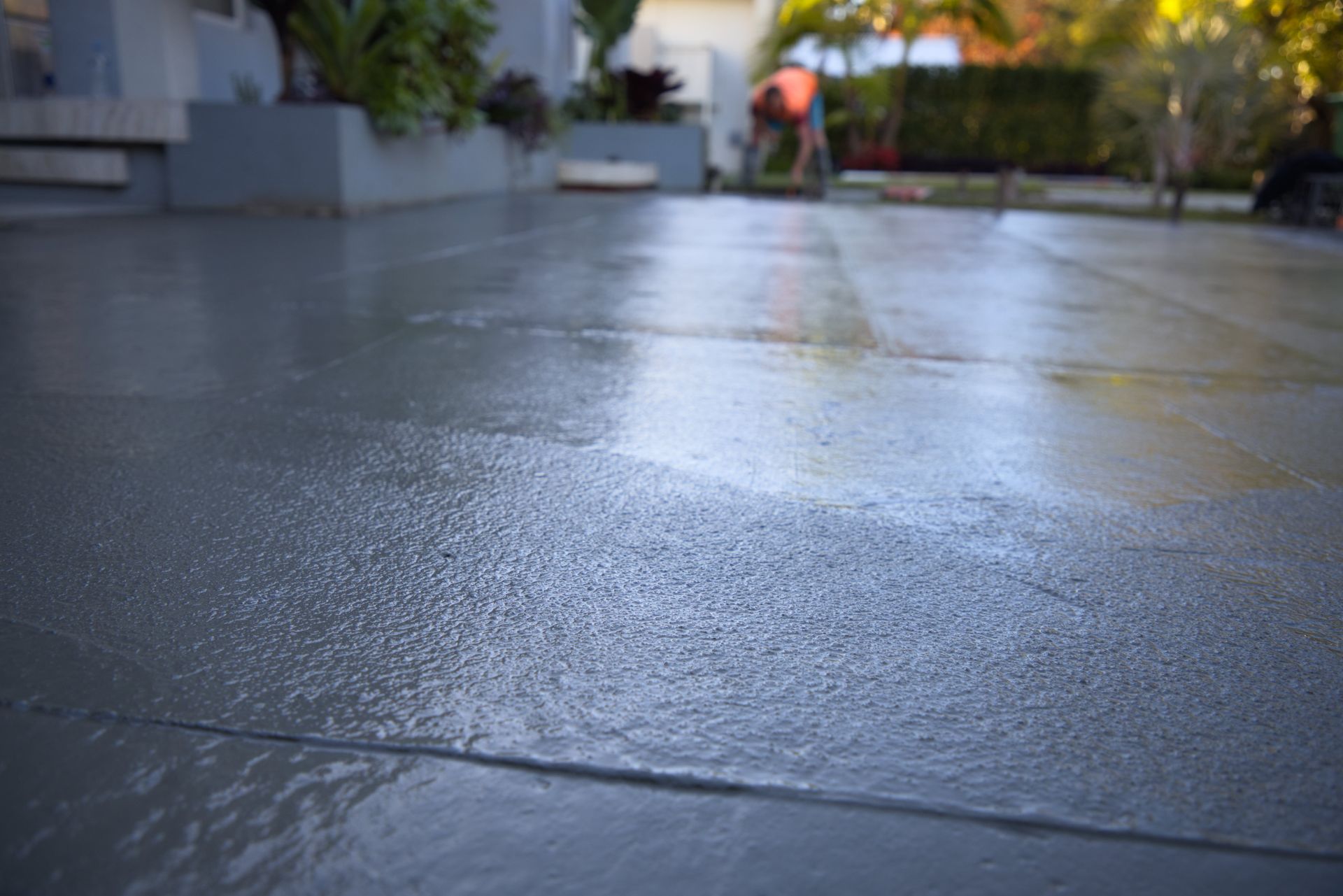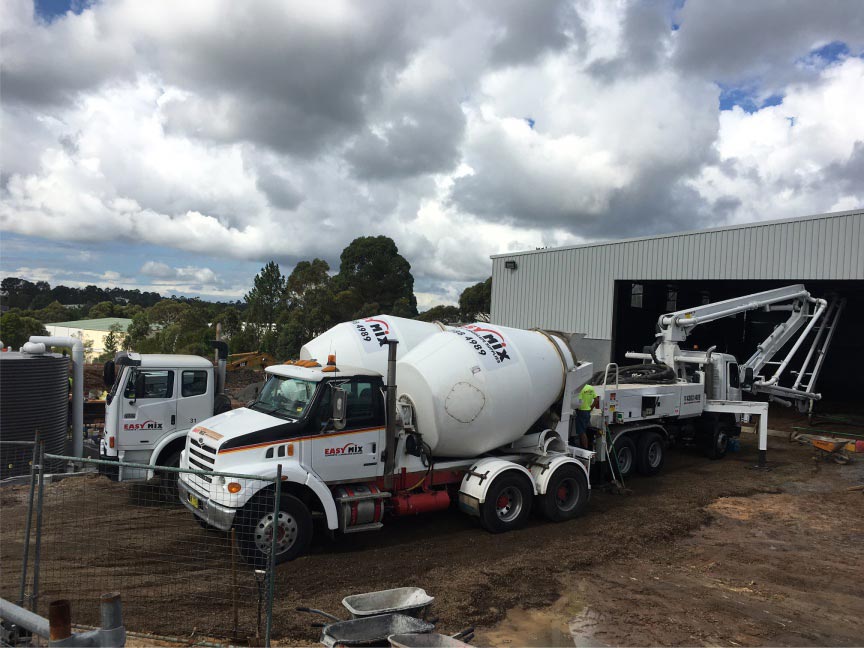8 Tips for Working with Ready-Mix Concrete Suppliers
When it comes to construction—whether you're building a new driveway, pouring a house slab or laying a commercial foundation—the role of a ready-mix concrete supplier is more critical than many realise. A well-coordinated supply of concrete saves time and ensures the structure's integrity and durability. From initial planning to delivery and curing, successful collaboration with a supplier can significantly affect your project’s outcome.
Whether you're a residential builder, commercial contractor or developer, working efficiently with concrete suppliers is vital to achieving a quality result without unnecessary delays or rework. Below are eight practical tips to help you get the most out of your partnership with a ready-mix concrete supplier.
1. Choose the Right Mix for Your Project
Concrete isn't one-size-fits-all. Different mixes are engineered for different applications, and using the wrong one can affect structural performance, durability and workability. Discussing the intended use of the concrete with your supplier is essential to get a mix that matches your needs.
Some common mix types include:
- Standard mix: Ideal for general-purpose slabs and footpaths.
- High-strength mix: Used for footings, foundations and commercial-grade slabs.
- Exposed aggregate mix: Chosen for decorative finishes on driveways and pathways.
- Rapid-set mix: Preferred for time-sensitive repairs or installations.
A good supplier will guide you through your options based on the project's structural requirements, site conditions and timeline.
2. Communicate Your Project Needs Clearly
Effective communication ensures your supplier understands your project scope and timeline. Ambiguity in order details can lead to costly delays or incorrect deliveries. Early, detailed conversations help avoid surprises on the day of delivery.
Be sure to discuss:
- Volume & slump: Accurate measurements ensure enough concrete is delivered with the desired workability.
- Site accessibility: Communicate any limitations or obstacles for delivery trucks or pumps.
- Additives or admixtures: Inform the supplier of special performance requirements, like waterproofing or faster curing.
The more clarity you provide upfront, the smoother the delivery and pour.
3. Plan Deliveries Around Site Readiness
There’s no point having a truck arrive on-site if forms aren’t ready or reinforcement isn’t in place. Concrete has a limited working window once mixed, so preparation is essential. Align delivery times with site readiness to avoid waste or rushed pours.
Site Condition: Result
Ready: Smooth delivery, no delays or wastage
Not Ready: Concrete may spoil, project delays are likely
Ensure access points are clear, formwork is complete, and labour is scheduled appropriately to receive the delivery without interruption.
4. Schedule Deliveries for Efficiency
Coordinating the delivery schedule with your supplier ensures concrete arrives when needed—no earlier, no later. Concrete that sits in the truck too long can lose workability and become difficult to pour or finish.
For larger pours or staged projects, consider staggered deliveries. This approach ensures:
- Continuous workability: Reduces downtime and cold joints between pours.
- Labour coordination: Keeps your crew productive without waiting around.
- Reduced risk of waste: Matches delivery volume to the pace of pour.
Example: A commercial slab pour may benefit from deliveries every 30 minutes over several hours to maintain consistency and finish quality.
5. Understand Curing & Weather Impacts
Curing is as important as the pour itself. Poor curing can lead to cracking, surface scaling or reduced strength. Your supplier can provide guidance on how to cure based on weather conditions and mix type.
Challenges to be aware of:
- Rain: Excess moisture can weaken surface strength and cause pitting.
- Heat: Accelerates drying, leading to surface cracks without proper curing.
- Cold: Slows setting time, potentially compromising finish quality.
- Wind: Increases evaporation and can lead to early surface drying.
Make plans to cure concrete properly—this might include applying curing compounds, using covers or retaining moisture with water curing, depending on the conditions.
6. Factor in Access & Site Logistics
Concrete delivery trucks are large and heavy, requiring clear access and ample space to manoeuvre. Poor access planning can result in delays, property damage or even rejected loads.
Key considerations include:
- Driveway or entry width: Can the truck reverse or turn easily?
- Ground conditions: Is the site stable enough to support heavy vehicles?
- Overhead obstacles: Powerlines and trees can restrict access.
- Pump placement: If pumping is required, ensure there's space for the boom and equipment.
Discuss these logistics with your supplier during the ordering phase so they can help plan a safe and efficient delivery.
7. Prioritise Safety During Delivery & Pouring
Safety should never be an afterthought when working with ready-mix concrete. While suppliers have their own protocols, site personnel must also take responsibility for maintaining a safe environment during delivery and pouring.
Essential safety practices include:
- Clear traffic management: Separate delivery and pedestrian zones.
- Personal protective equipment (PPE): All workers should wear appropriate gear, including gloves, boots and eye protection.
- Equipment readiness: Ensure vibrators, floats and other tools are operational before the pour.
- Communication protocols: Everyone on-site should know the delivery process and who’s coordinating the pour.
Good planning keeps your crew safe and your project running without incident.
8. Build Strong Relationships with Local Suppliers
Establishing a long-term relationship with a reliable local supplier has ongoing benefits. It creates mutual trust, streamlines future projects and often leads to better service.
Working with Central Coast concrete suppliers offers advantages such as:
- Better responsiveness: Local teams can respond quickly to schedule changes or site issues.
- Consistency in quality: Repeat orders from the same supplier reduce variability in mix performance.
- Technical advice: Trusted suppliers will often assist with troubleshooting or mix recommendations.
Good relationships improve collaboration and efficiency—especially during time-sensitive or high-volume projects.
Let’s Work Together to Get Your Project Right
At Easy Mix Concrete, we know how important a dependable concrete supply is for your construction success. Our team is here to support you every step of the way—from selecting the right mix to delivering it on time, every time. Whether you're a homeowner laying a patio or a builder managing a major development, we provide practical advice and prompt service you can count on.
Give us a call or get in touch via our contact page to discuss your concrete needs or to book a delivery with one of our Central Coast concrete suppliers.








